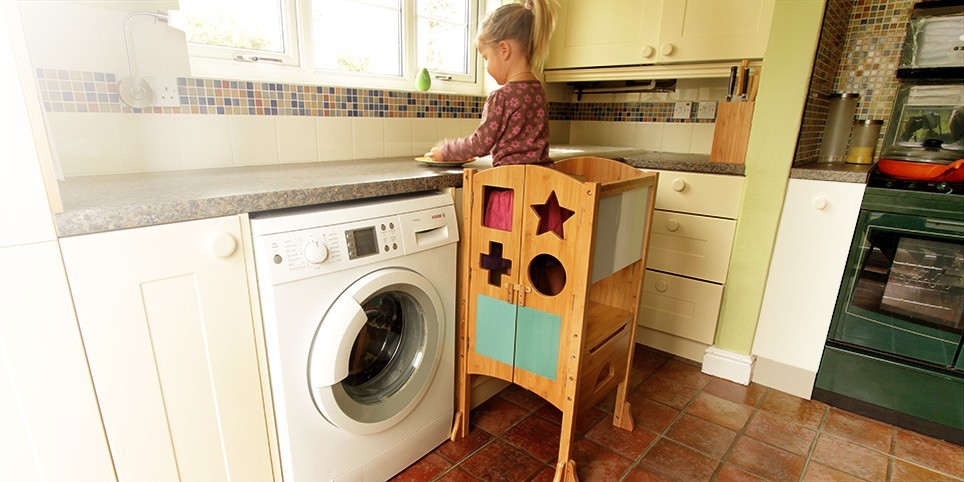Kitchen could be a good area for playing and learning, there are so many things children can do! Don't be afraid to involve them in different activities, at least let them observe how you cook.
Caution! Kitchens can be quite dangerous places, make sure your child can't get their hands on anything dangerous. That refers not only to sharp items like knives, peelers, forks, etc., but to hot water in the kettle, heated oven, various household liquids like bleach, detergents, etc.
- Children will like pouring some cereals from one unbreakable container to another, or putting in a small saucepan into a large one.
- Let your children see you cook, name all the ingredients you use and give them to your child to touch, smell and taste.
- Study kitchen sounds: boiling bubbling water, sputtering oil, running water from a tap, etc.
- Study temperatures and textures in the kitchen: show and touch cold and warm food, don't touch hot products - just place a hand near so that a child can feel the heated air (you can quickly touch a hot product, so that a child did not get burned).
- When you cook the batter for pancakes or muffins, ask your child to pour the flour mixture into the bowl, or give the necessary amount of water and let them pour it into the dry mixture, stir the batter, and even better - offer to knead it by hand. It's exciting for children!
- Let them help prepare food, just simple actions like banana slicing, spreading butter or jam on toasts and washing fruit.
- When the children can control their hands, let them use a whisk to make bubbles in a sink of water
- Give them a task to roll out and cut cookie dough
- You can pour dry pasta or macaroni on the table and invite your children to form letters, numbers and shapes from them.
- Using food, teach your children to count, add and subtract. Helping you in the kitchen, your child learns the concepts of "weight", "size", "part" and gets a lot of useful information that will be useful to him in life.
- Teach children to measure the ingredients. Give your child a small measure cup, let them fill a glass or a pan with flour (or water, sugar, etc.) and ask to count how many measure cups they added.
- Give them a cookbook and ask to read the recipe and tell you what to do. Let them feel a commander of the process.
